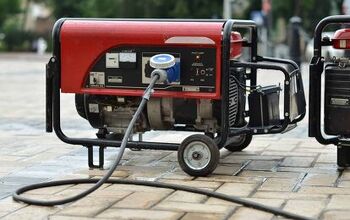Can Heavy Rain Cause A Sewer Backup? (Find Out Now!)

Heavy rain and storms can cause several problems for your home, and many homeowners dread a flood in their basement. Not only can heavy rains damage your plumbing and foundation, but heavy rains can also cause a sewer backup to occur, creating a whole slew of additional problems.
Heavy rains can cause a sudden abundance of water that can be too much for the municipal sewer systems to handle. When the sewer system becomes overwhelmed, sewage can flow backward, toward your home rather than away. Without the proper valves and precautionary plumbing measures, sewer backup is free to flow into your home, creating a dangerous situation.
A sewer backup can be caused by exceptionally rapid snowmelt in some cases as well. Modifying your plumbing to install automatic check valves is a great way to prevent backwater sewage from penetrating your home. Routine maintenance of your plumbing and good practices can help keep your drains and plumbing clear, which can also help to prevent a sewer backflow flood into your home.
Do You Need Sewer Cleaning Services?
Get free, zero-commitment quotes from pro contractors near you.

Why Does My Sewer Backup When it Rains?
When heavy rains occur, the sewer systems, especially municipal sewer systems, can become overloaded with the heavy downpour of water all at once. When the amount of water overwhelms the sewer, it can start flowing backward. When this happens, the sewer will be free to flow into your home rather than flowing out of your home. Luckily, there are some easy preventative measures and plumbing modifications you can perform to prevent sewer backup floodwater from entering your home.
What Are Signs of a Sewer Backup?
If water from a sewer backup is entering your home, you want to be aware early so you can correct the situation. Luckily, there are some very distinct, tell-tale signs that you may have a sewage backup problem developing.
Some common warning signs of a sewer backup include:
- Strong sewage odors that are coming from the drains in your home
- Multiple drains clogging simultaneously
- Bubbling coming from drains or the toilets
- Visible sewage coming from the cleanout pipe
- Very slow drains on multiple drains at one time
What Can I Do To Stay Safe After a Backup?
If you have a sewer backup into your home, the most important thing is that you and your family stay safe. Sewer backup contains bacteria that could be harmful, and any flood can create a dangerous situation. Never enter a room with floodwater and a live electric current. You could become seriously injured by entering water where electricity may be flowing.
For gas appliances that use a pilot light, floodwaters can create a dangerous situation. As the water reaches the pilot light, the flame can go out, causing gas to build up in your home. If you smell gas in your home, especially following a backwater flood, be sure to call the gas company to come and investigate the situation.
How Can I Prevent a Sewer Backup with Basic Maintenance?
Preventing a sewer backup in your home is the first step to protecting your belongings. With some essential maintenance and good practices put into place at your home, you’ll be able to limit the number of sewer backups that happen during heavy rainfall.
Some great ways to keep your pipes clear and prevent backup include:
- Dispose of Grease – Many meals we make have a heavy amount of grease, so be sure to properly dispose of grease to prevent it from collecting inside your pipes. Always use a method to cool and dispose of the grease properly rather than pitching the grease down the drain.
- Paper Products – Only certain paper products will break down in the water. Ensure you properly dispose of paper products by throwing them in the trash if they are too thick to dissolve naturally in water.
- High Flush – You can help maintain your sewer line by setting your toilets to a high flush setting. This way, you can ensure that you don’t have any lingering clogs or paper products stuffing your sewer line, creating a backup situation.
What Plumbing Modifications Can Prevent Sewer Backup?
Unfortunately, sometimes a city sewer backup during heavy rains is not preventable, but there are some plumbing modifications you can make to help protect your house. While some solutions are very inexpensive, others may require more intensive plumbing to create fail-safe modifications. Some common plumbing modifications to prevent sewer backup include:
- Sewer Trap Plugs – These plugs fit the house trap to prevent water from spilling out. Replace any old trap plugs that don’t fit well with new sewer trap plugs. Many plug options are less than $10 and can be purchased at any hardware store.
- Backwater Check Valve – This manual valve system is easy to install and can be installed at the house trap location. Installing a backwater check valve can help prevent sewer backup at the main connection. (See More Below)
- Specific Backwater Check Valve – An individual backwater check valve can be installed at a particular location in the basement, such as the shower, sink, or toilet. These smaller backwater check valves are easy to install, cheaper, and can help protect individual fixtures from a sewer backup during heavy rains.
- Plastic Piping – Consider transitioning cast iron, clay, and copper piping to plastic PVC piping. This type of piping is more durable and can easily be retrofitted with different safety valves and checks to prevent backflow into your home.
- Fix Faulty Plumbing – Sometimes, plumbing is out of date or not performed with a permit. Usually, this means that plumbing has a questionable connection to the sewer line, which may be untrustworthy, especially during flooding. Be sure to have any illegal or not-to-code plumbing designs corrected by a licensed plumber.
What Is a Backwater Check Valve?
A simple solution that is commonly used to prevent sewer backwater from flooding your home during heavy rains is a backwater check valve. This valve requires self-operation and must manually be opened and closed. The valve will only allow flow in one direction, out of your home. This valve is an easy, simple, and inexpensive solution to prevent sewer backwater from flooding your home.
The backwater check valve is easy to install and only needs minimal maintenance. About two times per year, be sure to remove the few screws attaching it to the plumbing system to perform routine cleaning. Simply rinse, remove clogs, and fasten back into place. A backwater check valve will cost about $200 but can save you from spending thousands of dollars on necessary repairs from sewer flood damage in your home. Most major hardware and home improvement stores will carry this item.
What Is An Automatic Backwater Valve?
To help automate your sewer backup problems, a new automatic backwater valve can be installed to make the process seamless and foolproof. The automatic flood gate offers a solution to homeowners that frequently deal with sewer backups. While a check valve will undoubtedly help to prevent sewer backups, this method is not 100% effective every time.
Comparatively, an automatic backwater valve is 100% effective and can prevent backwater. Unlike a check valve, the valve on an automatic sensor does not have to be manually opened and closed during heavy rains. The unit does not rely on electric power to function, so it is sure to work even when the power is cut out due to heavy rains and storms. An automatic backwater valve is easy to install and will last for a very extended period with little maintenance and upkeep.
Do You Need Sewer Cleaning Services?
Get free, zero-commitment quotes from pro contractors near you.

Related Questions
Can installing a sump pump help with sewer backup and flooding?
A sump pump may be a wise investment for those with common flooding concerns or those who live in low areas. Not only can a sump pump help keep your basement dry, but it can help pump away water, including sewer water, that may back up into your home.Speaking with a professional will help determine which sump pump model is suitable for you. Many sump pumps work with an automatic sensor that will turn on when a particular water level is reached. Because flooding caused by a sewer backup during heavy rains often coincides with heavy storms, it is a good idea to also invest in a generator to run your sump pump if the electricity goes out from the storm. Without power, your sump pump will not be able to run to remove the rising floodwater and sewer water from your basement.
Can heavy rains impact the plumbing for my house?
Aside from causing flooding and a possible sewer backup, heavy rains can cause a great deal of damage to your house. When heavy rain falls around your home, increased pressure is placed on your plumbing system. This added pressure can cause the pipes located underground to shift, causing some potential backups in your system not related to sewer backup.Always be aware of warning signs that your pipes may be broken, leaking, or clogged, and reach out to a licensed plumber to help correct the situation before a catastrophic plumbing break occurs.
Related Articles

We are a team of passionate homeowners, home improvement pros, and DIY enthusiasts who enjoy sharing home improvement, housekeeping, decorating, and more with other homeowners! Whether you're looking for a step-by-step guide on fixing an appliance or the cost of installing a fence, we've here to help.
More by Upgraded Home Team



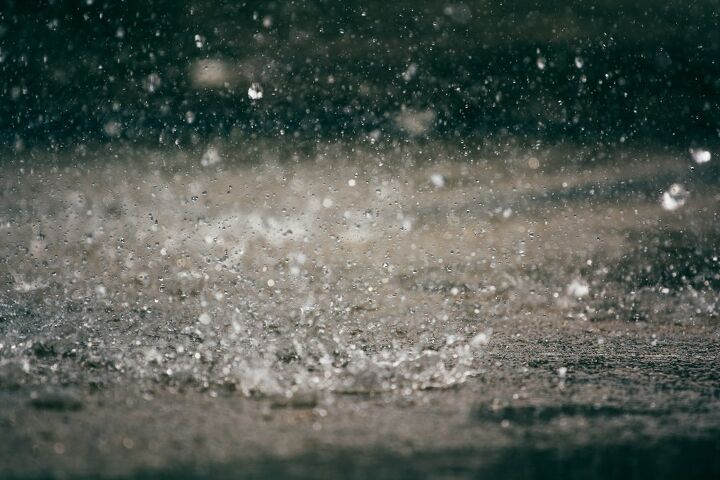






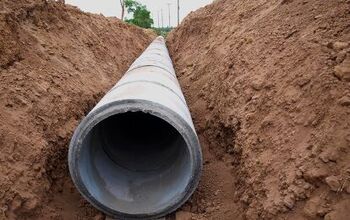
![The 5 Best Angle Grinders – [2022 Reviews & Buyer's Guide]](https://cdn-fastly.upgradedhome.com/media/2023/07/31/9071326/the-5-best-angle-grinders-2022-reviews-buyer-s-guide.jpg?size=350x220)
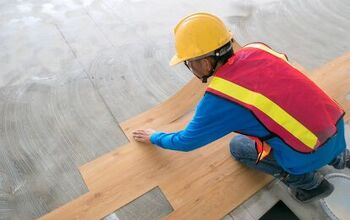



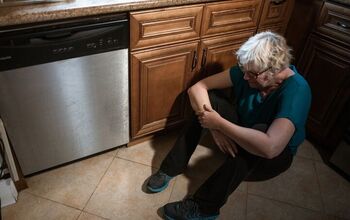
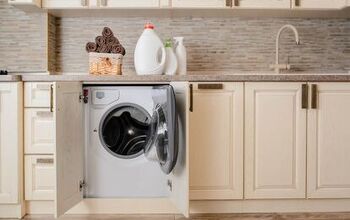




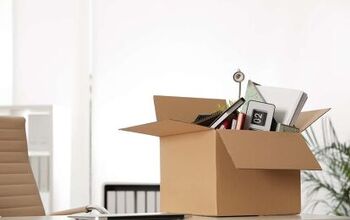

![10 Most Dangerous Neighborhoods in Baltimore [Updated]](https://cdn-fastly.upgradedhome.com/media/2023/07/31/9075655/10-most-dangerous-neighborhoods-in-baltimore-updated.jpg?size=350x220)

